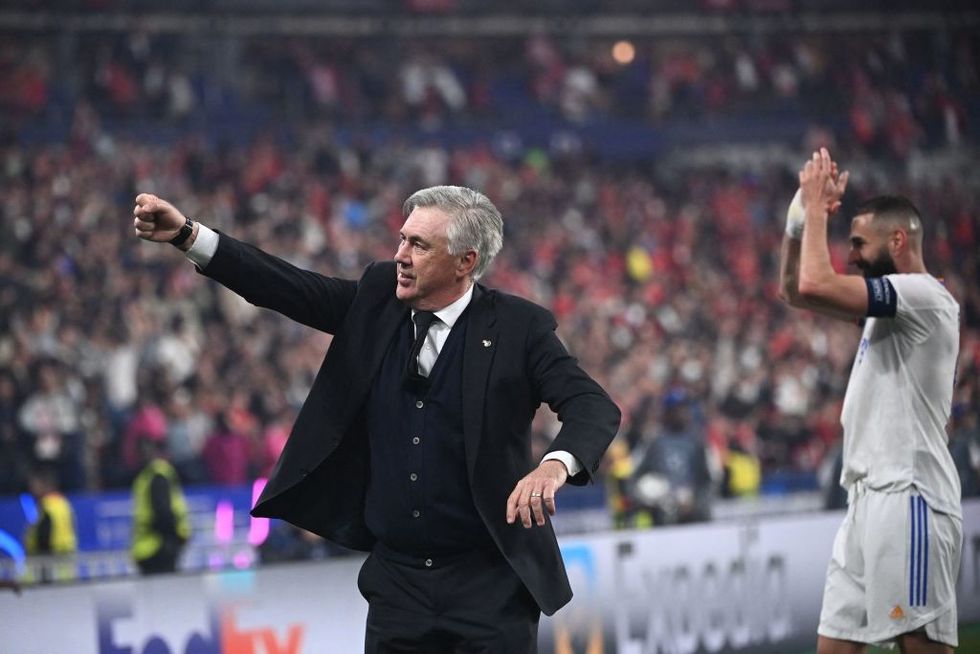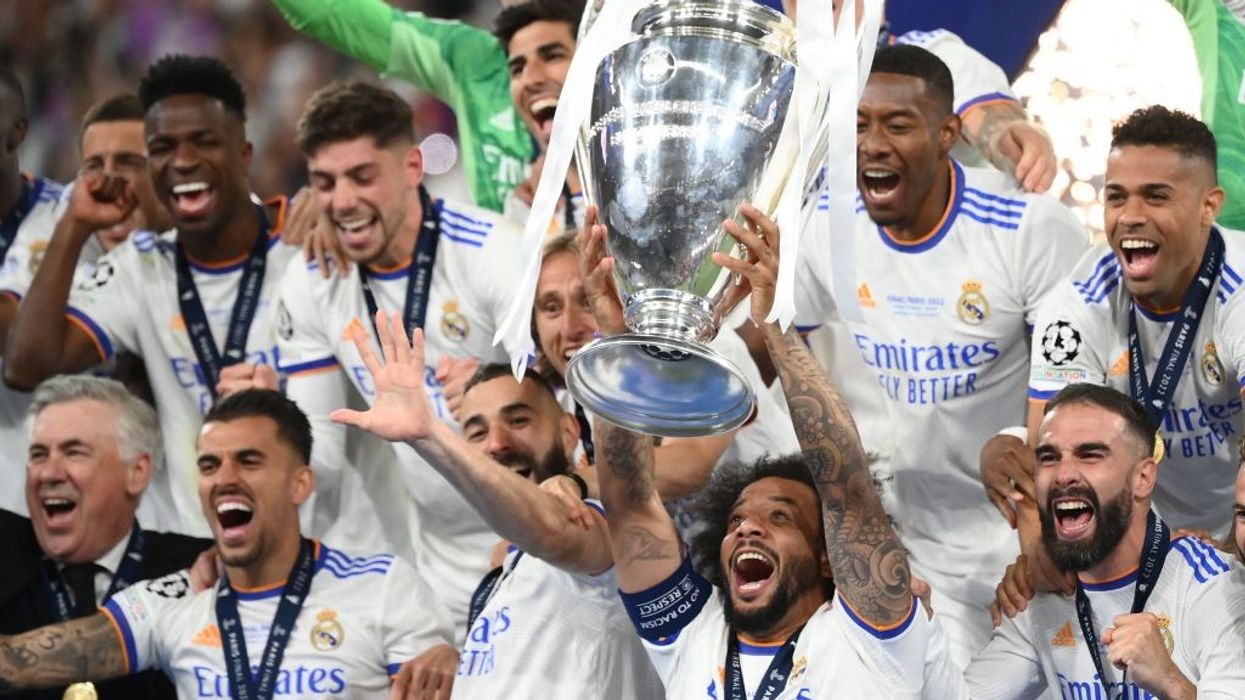A 'winning culture' may be one of the most overused terms in modern football but Real Madrid and Carlo Ancelotti proved on Saturday, at Liverpool's expense, that there truly is meaning and value in the concept.
With the 1-0 win over Juergen Klopp's side, Ancelotti became the first coach to claim the Champions League four times, with his second victory as Real boss coming after two triumphs with AC Milan.
As for the Spanish champions, this was the 14th time they have won Europe's elite club competition -- twice as many as the next most successful team Milan.
That pedigree, on the bench and on the field, has created a calm confidence that has seen them come through the toughest tests in this year's competition.
To reach the final, Real came through a knockout stage which first saw them up against a Paris St Germain side with Lionel Messi, Neymar and Kylian Mbappe -- they came back from 2-0 down on aggregate to progress thanks to a Karim Benzema hat-trick.
Defending champions Chelsea were next, beaten in extra time thanks to another Benzema goal before the Frenchman then got the decisive goal in the remarkable late comeback to beat Premier League champions Manchester City in the semi-final.

There was no such drama at the Stade de France on Saturday where, after surviving some early Liverpool dominance and suffering the setback of a disallowed Benzema goal, Real took a grip on the game after halftime, got their goal and then, with help from goalkeeper Thibaut Courtois, defended their lead.
Ancelotti's success has been founded on strong and trusting relationships with his senior players -- from the days when Paolo Maldini organised his Milan defence to the current faith he shows in Benzema and Luka Modric to get Real over the line.
The understated confidence was evident from the moment Real entered the ground in sharp suits and ties, as though they knew they were attending an awards ceremony.
In marked contrast, Liverpool's players got off their bus in t-shirts and tracksuits and it was not the only clash of cultures in the build-up to the game.
While Klopp boasted about his team being "mentality monsters" and never struggled to find superlatives to describe his players, Ancelotti, true to form, was much more understated.
RESTRAINED ANCELOTTI
The Italian adopts the same approach on the touchline -- rarely showing emotion, trusting his players to follow his gameplan without the need for arm-waving and shouting.
But that restrained demeanour, disguises a too-often underrated tactical astuteness from the Real coach.
Ancelotti's side defended deep, an approach which forced Liverpool to choose between pushing on and risking leaving space for Real's deadly counter-attacks or sitting in space themselves and playing a slower passing game.
Klopp's players adopted the latter approach and that meant they were forced to play at a slower tempo and with little of the aggressive, fast attacks down the flanks that has been their hallmark under the German.
With the ball Real were patient but they, and particularly Modric, frequently looked to play the ball over the back of Liverpool right-back Trent Alexander-Arnold, an approach which created some of their better moments.
After the break, Real stepped up their tempo with the ball, imposing themselves in midfield and Liverpool struggled to move into a higher gear, until a late spell of pressure in their desperate search for an equaliser.
Although Courtois was forced into action on several occasions, there was never a hint of panic in the way Real defended, their self-belief and confidence in their abilities seeing them through to the final whistle.
It was the performance of a Real team which knows how to win in the biggest games, something which Klopp's side for all their qualities - and despite one Premier League title and one Champions League triumph -- have yet to truly learn.
In their six games against top four opponents in the Premier League this past season, Liverpool failed to win, drawing them all. In the two domestic Cup finals they won against Chelsea, they failed to score, claiming the trophies after shootouts.
Liverpool are talked about, along with Manchester City, as one of the two best teams in the world. Yet it is Real, seen by many at the start of the season as an ageing, fading force, who finished with a rare LaLiga and Champions League double.
While Klopp creates the excitement and the viral video moments, it is Ancelotti who heads into the Paris night with the quiet satisfaction of having become the most successful manager the Champions League has ever seen.
(Reuters)





